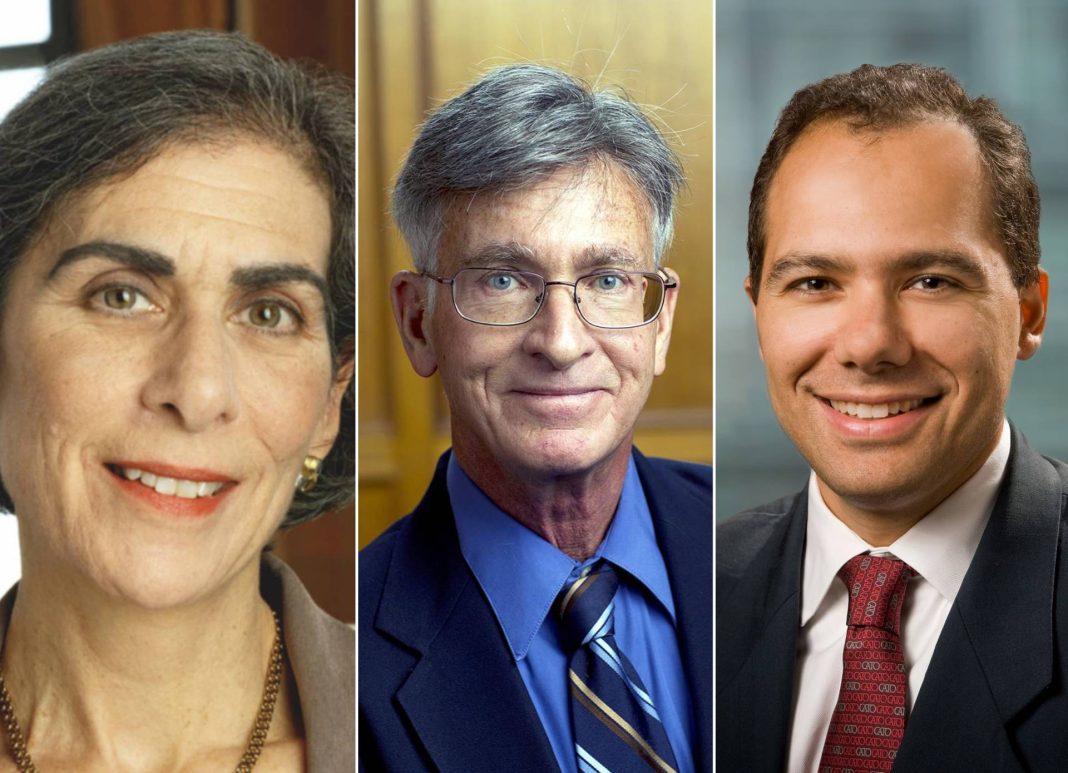A professor at the University of Pennsylvania Carey School of Law is under fire for her remarks about “problematic immigration by the Asian elite.”
Amy Wax, a longtime professor with tenure, has a history of making controversial statements. She appeared on the Dec. 20 episode of a podcast by Brown University professor Glenn Loury and made the offending statements. Wax said Asians “tend to be more conformist to whatever the dominant ethos is,” and went on to define that dominant ethos as “wokeness.”
Wax said that the United States would be “better off with fewer Asians and less Asian immigration” as long as they support the Democratic party and its political positions.
“Like all racist generalizations, Wax’s recent comments inflict harm by perpetuating stereotypes and placing differential burdens on Asian students, faculty and staff to carry the weight of this vitriol and bias,” said Carey Law Dean Ted Ruger in an official statement on January 3.
“The same academic freedom principles that permit current scholars to engage in critical and overdue analysis of this nation’s historical and structural discrimination—despite zealous efforts to censor such speech by some—also apply to faculty like Wax who voice xenophobic and white supremacist views,” he added.
As it currently stands, the school is preparing a case for a faculty senate hearing against Wax. Additionally, it is taking steps to reinforce equity and inclusion at the school, including a 68% increase in financial aid and a website that will track diversity schoolwide.
—————————————————————
The Emory Law Journal has withdrawn an offer to publish an essay from San Diego Law professor Larry Alexander in a festschrift (a collection of writings published in honor of a scholar; don’t worry, I had to look it up, too) honoring Michael Perry, a senior fellow at Emory Law and a Woodruff Chair.
The essay contained criticism of commonly held theories about systemic racism in America. The editors took issue with Alexander’s use of “hurtful and unnecessarily divisive” language, as well as a lack of proper citation for certain statements, such as “thankfully racism is not an issue today.” Finally, they believed that the essay did not sufficiently connect to Perry’s work, which was the entire point of the essay’s proposed inclusion.
Right-leaning critics shout that he is being censored for wanting to discuss a politically volatile situation. Pundits on the left say that the essay was poorly constructed in the first place and that not accepting his work without proper revision to make his argument more coherent is simply due diligence.
The executive board even released a statement that included the following: “We think there are fair points of intellectual disagreement that would not necessarily warrant the extreme action of withdrawing our publication offer. However, we believe this piece would need to be greatly revised to be published in our journal.”
In the end, they recommended edits to the essay to meet academic standards, Alexander refused, and here we are.
—————————————————————
Ilya Shapiro, who was recently named as the incoming executive director and senior lecturer for the Georgetown Law School’s Center for the Constitution, is being condemned for tweeting that President Biden’s next Supreme Court pick would be a “lesser black woman.”
Shapiro said, “Because Biden said he’s only consider [sic] black women for SCOTUS, his nominee will always have an asterisk attached. Fitting that the Court takes up affirmative action next term. Objectively best pick for Biden is Sri Srinivasan, who is solid prog & v smart. Even has identity politics benefit of being Asian (Indian) American. But alas doesn’t fit into latest intersectionality hierarchy so we’ll get lesser black woman. Thank heaven for small favors?”
He quickly deleted the tweets and issued an apology, calling the tweets “inartful.”
“I regret my poor choice of words, which undermined my message that nobody should be discriminated against for his or her skin color,” Shapiro wrote.
The school placed Shapiro on administrative leave, but that’s not enough, argued the school’s Black Law Students Association. They are calling for his employment contract to be terminated.
“Our concern and frustration is not rooted in Shapiro’s opinion that someone else is more qualified for the position,” the BLSA said. “Instead, our anger stems from Shapiro’s suggestion that any Black woman, regardless of their qualifications, would be a ‘lesser’ choice for the Court.”
Conservative and libertarian students at Georgetown are opposed to any such termination and claim that Shapiro’s words, while improperly phrased, were not racist and that Shapiro himself is not racist. They also accuse the school of engaging in “mob rule” by even considering the BLSA’s declaration.
The school is currently investigating whether Shapiro violated its policies and expectations of professional conduct, but as of publication no verdict has been reached and Shapiro is still on leave.

